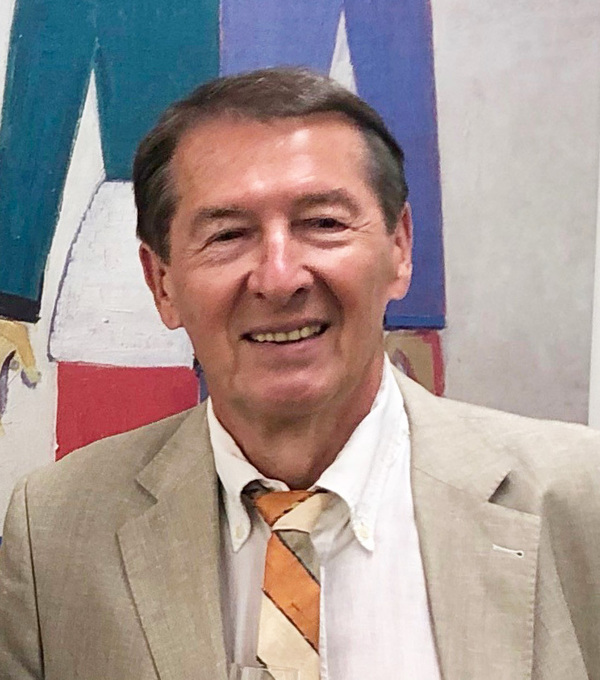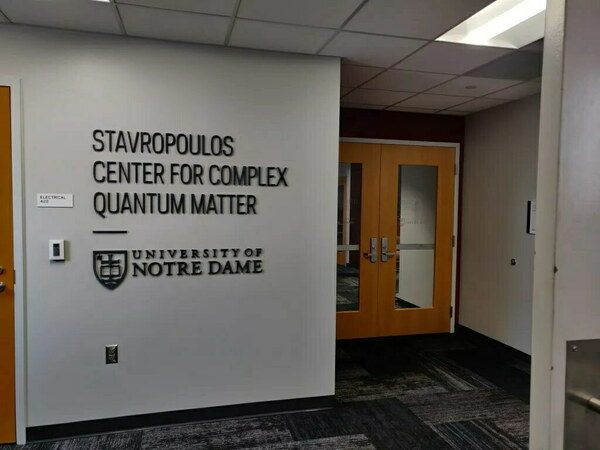
Building a center for quantum innovation
Back on Notre Dame’s campus, a new research center aims to provide the physical hardware needed to facilitate the opportunities and applications discussed above.
Located on the fourth floor of the Nieuwland Hall of Science, the Stavropoulos Center for Complex Quantum Matter was established in 2019 as a home for research on new materials for next-generation technologies like quantum computing.
Dr. Laszlo Forro came to Notre Dame from Switzerland in July 2021 to serve as a professor of physics and director of the Stavropoulos Center, bringing a mindset of doing research that leads to practical applications … at least eventually.
“In this branch of condensed matter physics, the goal is always to do something useful,” Forro said. “But I believe that every serious research, sooner or later, will be applied. It’s just a question of different timescales — could be applied in two years, five years or 50.”
Quantum computing is one key area of research for the Stavropoulos Center. According to Forro, an important unaddressed issue with quantum computers is longevity: being able to sustain quantum states (i.e., avoid decoherence) long enough to operate the computer and process information.
New quantum materials can help solve this issue. Researchers at the Stavropoulos Center are experimenting with different atomic structures and creating pure materials that can extend the lifetime of quantum states, and therefore improve the usability of quantum. computers.

As noted, quantum computers can’t do everything better or faster than a classical computer. However, once quantum materials are improved, Forro sees a multitude of applications for quantum technology. Potential uses include cryptography in banking or data transferring, drug discovery and AI or machine learning research.
Forro also thinks that quantum computing could be a commercially available technology. He suggested that, in the future, we could have USB stick devices that plug into classical computers and enable quantum computation.
However, Forro said that these applications are far off, and there is significant uncertainty about timelines for viable quantum computers. For now, Forró’s immediate goals are to expand his team, grow the Stavropoulos center and produce research.
“We have hired high-level scientists, and I hope that, based on our performance, we can ask the school to give us a few more positions to extend our research profile and to be more productive,” Forro said.
Forro believes that Notre Dame has his back in this effort to build the Stavropoulos Center into a world-class quantum research facility.
“If it runs well, I have no doubt that the school will support us to extend the number of [project leaders],” Forro said. “I have a strategic plan and vision for the center, which is supported by the college of science Dean [Santiago Schnell] and also by the Provost [John McGreevy] today. This is a very nice feeling for me as a director — that I will have the full support of the school.”
The full article can be found here: From the Future: Quantum Computing